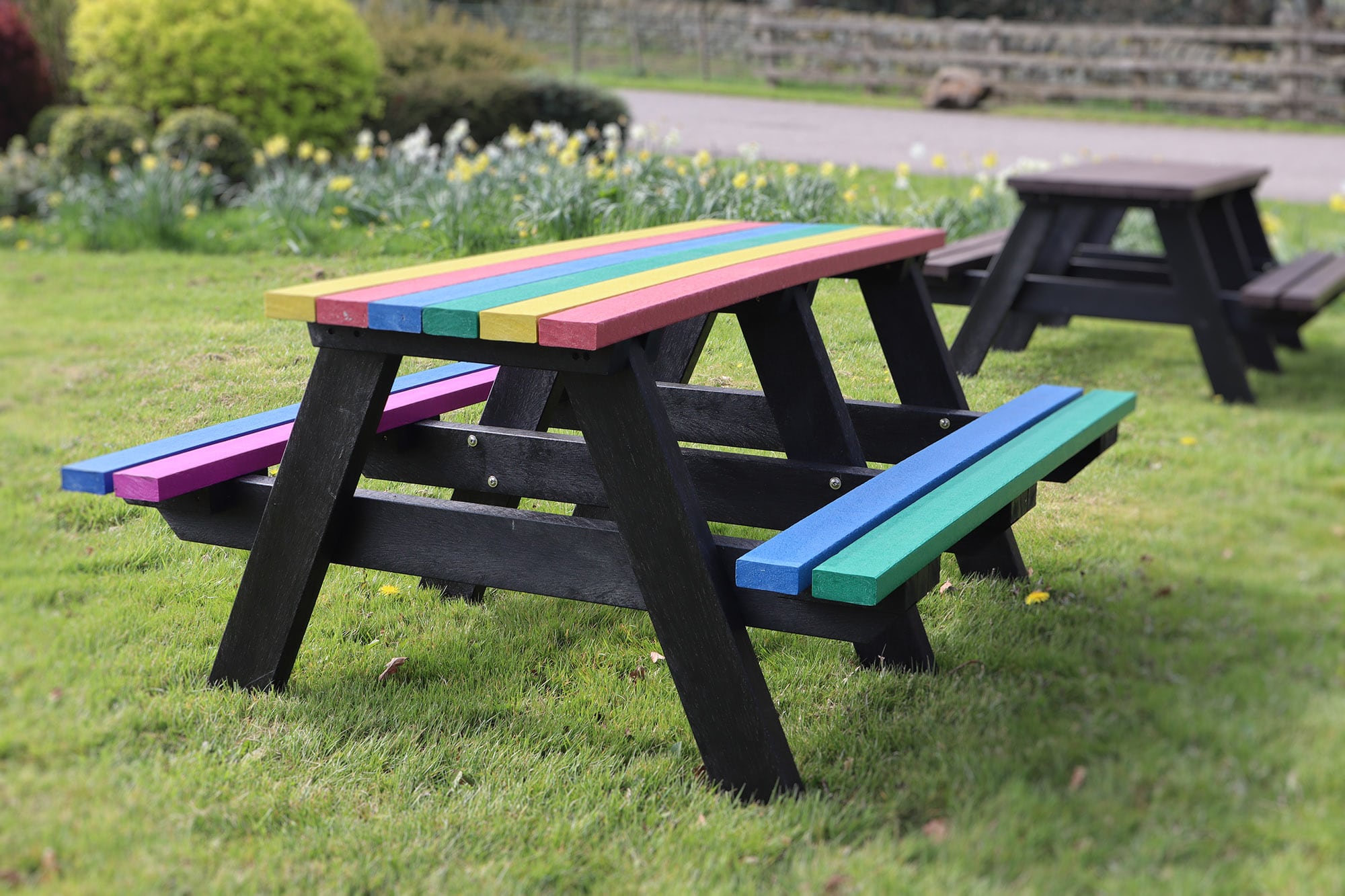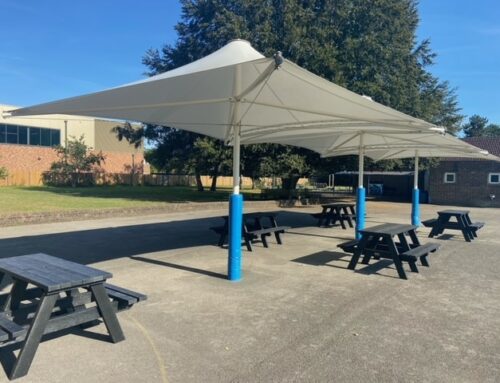The classic picnic table is a timeless and functional piece of outdoor furniture that is the preferred option for numerous settings. The simplicity of the design allows for easy assembly and maintenance, and the integrated seating and spacious tabletop offers an excellent choice for parks, playgrounds, sports clubs, and various outdoor settings where people come together to enjoy food, conversation and the beauty of the outdoors.
Whilst the popular picnic table design has functional benefits that have stood the test of time, the materials traditionally used – wood, and more recently, wood composite – present an array of issues. The ongoing maintenance required with wooden picnic tables is a valid concern for consumers. As wood is susceptible to the elements, including rain, snow and sunlight, the tables inevitably deteriorate over time, and this deterioration can take form in rot, splintering, mould and mildew issues, and an overall loss of structural integrity. This means that the tables require regular maintenance to keep them in good condition including staining, sealing, or painting to protect the wood from weathering, UV damage and moisture.
The negative environmental impact of wooden tables is also a valid drawback to consider. The use of natural wood contributes to deforestation and places pressure on forest ecosystems. This can raise environmental concerns, especially if the wood is sourced from unsustainable forestry practices.
Composite tables pose a new set of issues
In the effort to mitigate some of the maintenance issues associated with the wooden tables, ‘composite’ picnic tables have become an increasingly popular option. Stemming from the original term ‘WPC’ or ‘Wood-Plastic Composite’, this hybrid material typically includes a mixture of wood particles and plastic polymers (such as polyethylene, polypropylene or PVC). To an extent, composite picnic tables do mitigate certain challenges associated with wood such as rotting and splintering, but this hybrid material comes with its own set of drawbacks. The composite material can be sensitive to high temperatures, with prolonged exposure to direct sunlight causing fading and warping, and mould and mildew growth is still a risk factor in humid and wet environments.
Although composite tables are often marketed as a more long-lasting solution, they are still vulnerable to the outdoor environment and are prone to deterioration. Unfortunately, the nature of the composite material means that it is not easily repairable, often making replacement a realistic proposition over time.
Much like wooden tables, their composite counterparts also have some environmental downsides to consider. The complex combination of materials used in composite tables means that they are not able to be recycled, and as the tables are generally made in Asia, they come with a large carbon footprint.
The rise in demand for composite picnic tables does raise a valid issue – there is a real need for robust outdoor furniture that lasts. Unlike wood and composite tables which each come with their own set of functional issues, our 100% British recycled plastic picnic tables offer a simple, maintenance-free solution. By taking the worst quality associated with plastic – its longevity – and recycling this into functional outdoor furniture, we are able to offer long-wearing, robust furniture that is guaranteed to stand the test of time.
Recycled plastic offers a stronger and more durable alternative to wood and composite, that does not rot or splinter, and remains completely uncompromised in outdoor environments. Our British made tables offer an environmentally friendly option with a low carbon footprint, and a manufacturing process that uses 100% renewable energy.
Our robust recycled plastic comes in a variety of colours and finishes, offering an aesthetic freedom that is simply not possibly with traditional wooden picnic tables. Unlike composite which attempts to emulate wood but does not fully capture the natural look and feel of real wood, recycled plastic offers a multitude of new directions for outdoor furniture.
It is also worth noting that whilst the initial cost of wood and composite picnic tables may be lower, once maintenance, repairs, and replacement costs are considered, recycled plastic is often a more cost effective solution.













